A Letter from Katie Botkin in France:
Antoine, the youngest of the Mazos, has given me an unexpected birthday present: a beautiful little pendant that looks like a large pearl or a small, pristinely white Fabergé egg. I put it around my neck and feel the smoothness of it with my fingertips. I thank Antoine, but I wonder if he knows how much I like it. Somehow, oddly, it reminds me of the bracelet I got from all the teachers at the Lycee in Rouen when I left their ranks years before. But perhaps not so oddly, because both pieces of jewelry were handcrafted in Rouen. Christine, Antoine’s mother and my favorite fellow teacher, was sure to tell me that it was local, just as Antoine tells me now that this necklace is local.
Back in 2005, when my contract ran out and I left Rouen to see Italy and Ireland, I threw most of my clothes in the charity bin by a supermarket hidden in the labyrinth of the Norman streets. I hadn’t brought or bought much of value. But I was proud of that silver bracelet around my wrist, serpentine leaves with centers of blue crystal; not sapphire but just as hot in the light. I hadn’t liked the bracelet at first, honestly, but, overwhelmed at the generosity of my colleagues, I had put it on and kissed all of them as was the custom, even the dour principal with sagging jowls.
I wore it to Italy. In Pisa, I sat in a green field, contemplating the tower alone, playing with the facets of my bracelet. At one angle the reflected light shone straight up green into the green of my eye, taking up the total of my vision. In Florence I slept with the bracelet clasped around my wrist in a stranger’s apartment. I trusted the stranger, who lived near Seattle normally, recognizing her as the sort of girl who wanted to have adventures to tell upon her return, like, yeah, there was this one time I met this chick outside the train station and I was like, yeah, you can stay with me ‘cause we Americans need to stick together. I assume she thought I was OK because I didn’t look like a beggar.
But the only barrier between myself and those beggars bowing on the pavement was the weight pressing me downward, the bite of my luggage, the euros around my neck, and my paltry gentility. I had no idea which city to live in after I got back to the States, no home, no job; I really and truly was homeless and jobless just like those beggars, however temporarily. But I shrugged and took the train to Rome, talking on the way with a parachutist from Sardinia, who tried to teach me Italian and then left forever with a tip of his cap.
On the plane to Dublin the light came in the window and sent back prism shards
onto the plastic wall, some blue-cold, some separated sharply into red yellow purple.
We flew over Normandy into the sunset. In Dublin, I hopped on a bus to my hostel,
debarked, and took a shower. I looked in the mirror to see my wrist and it was naked.
I felt naked all that day, and the thought that kept coming back to me was: what is the point of seeing things if you have no way to keep them?
So when Antoine gives me the necklace, I think, secretly, this can replace the thing I lost before. On this trip, I’ve gone in exactly the reverse of that other trip: Ireland, Italy, Normandy, and here I am with something to remember my time in Normandy again. It’s a pleasing thought.
I take the train to Paris wearing this necklace, check in to my hotel, and meet up with friends from the Netherlands. We all go to dinner, where I can’t help running my fingers over the smoothness of the white pendent in between courses, just to make sure it’s still there. Then we decide we’re going to take the metro to La Defense not far away. We hop on the metro, hang on the rails, chatting and catching up, and I look in the window to see my throat. It is naked. I put my hand up, startled.
I go back to my hotel room, which has a stunning view of the Eiffel tower, but I am too irritated to pay much attention to that. I ransack my room in case I have lost my mind and the necklace is actually in my luggage somewhere. But it’s not. Just as before, I have no idea if the jewelry was lost or stolen.
I sit down on the bed and wonder if I should cry. I am just as I was before, that girl who felt suddenly as if her only physical link to history and nobility had disappeared. And I have to remind myself that things have changed slightly — I have a job, I have a house, I have a posh hotel room to sleep in rather than a $12 hostel, and yes, I even have more jewelry. I take a photo of the Eiffel tower to appease myself. This, too, can be a souvenir.

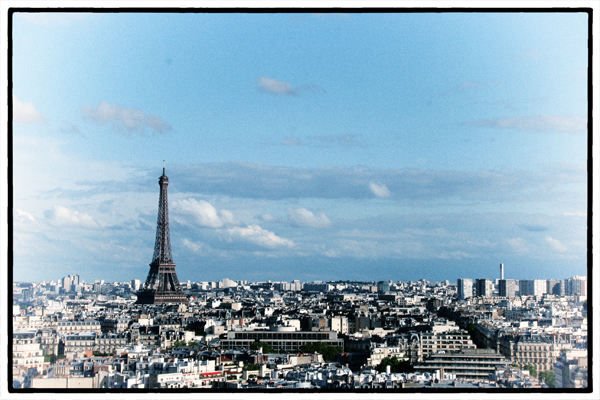
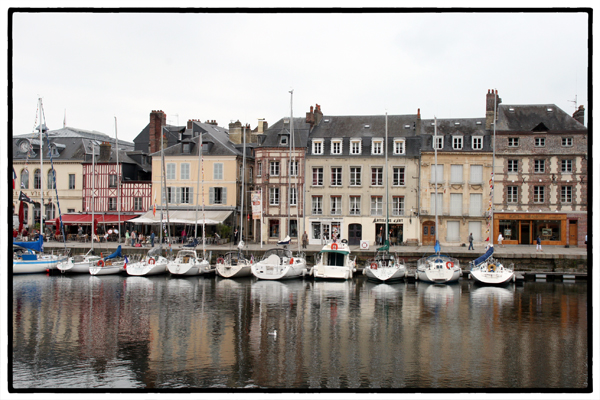
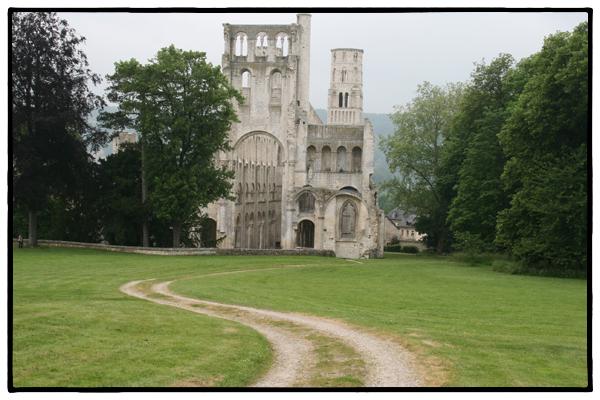
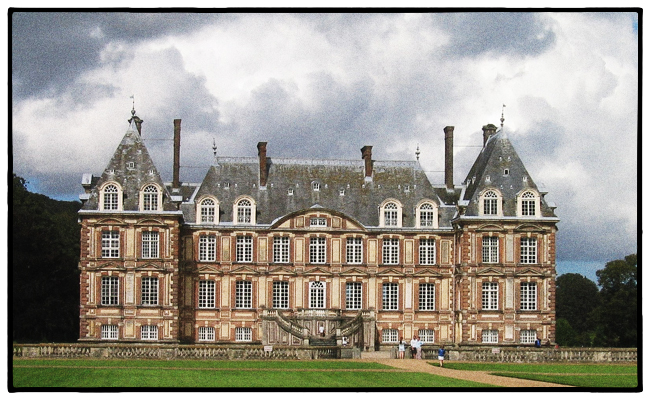
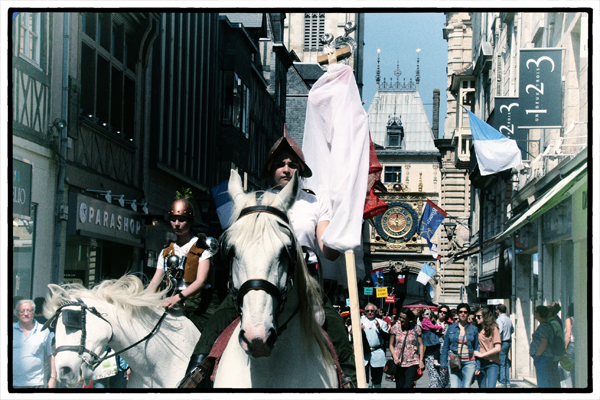
Recent Comments